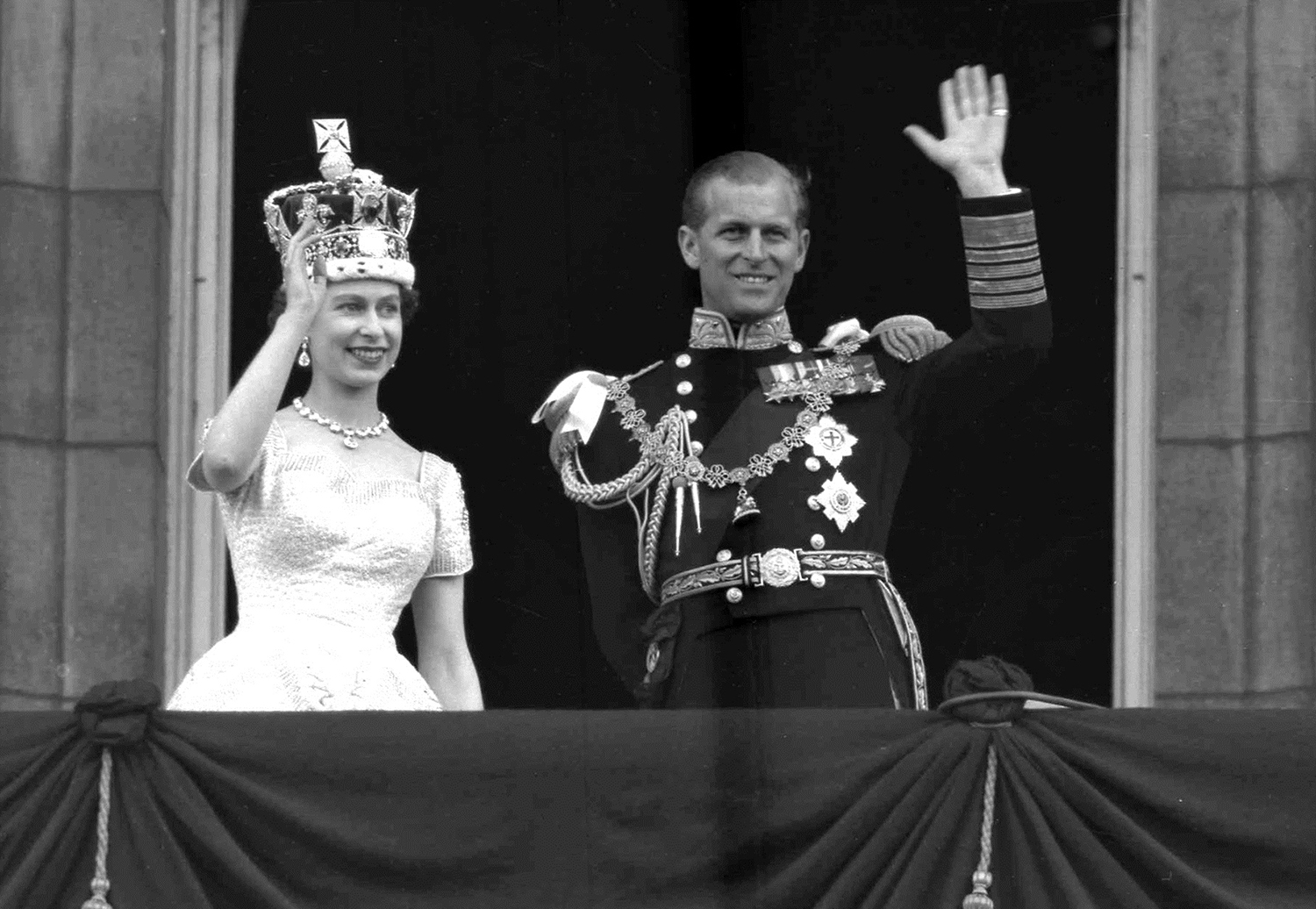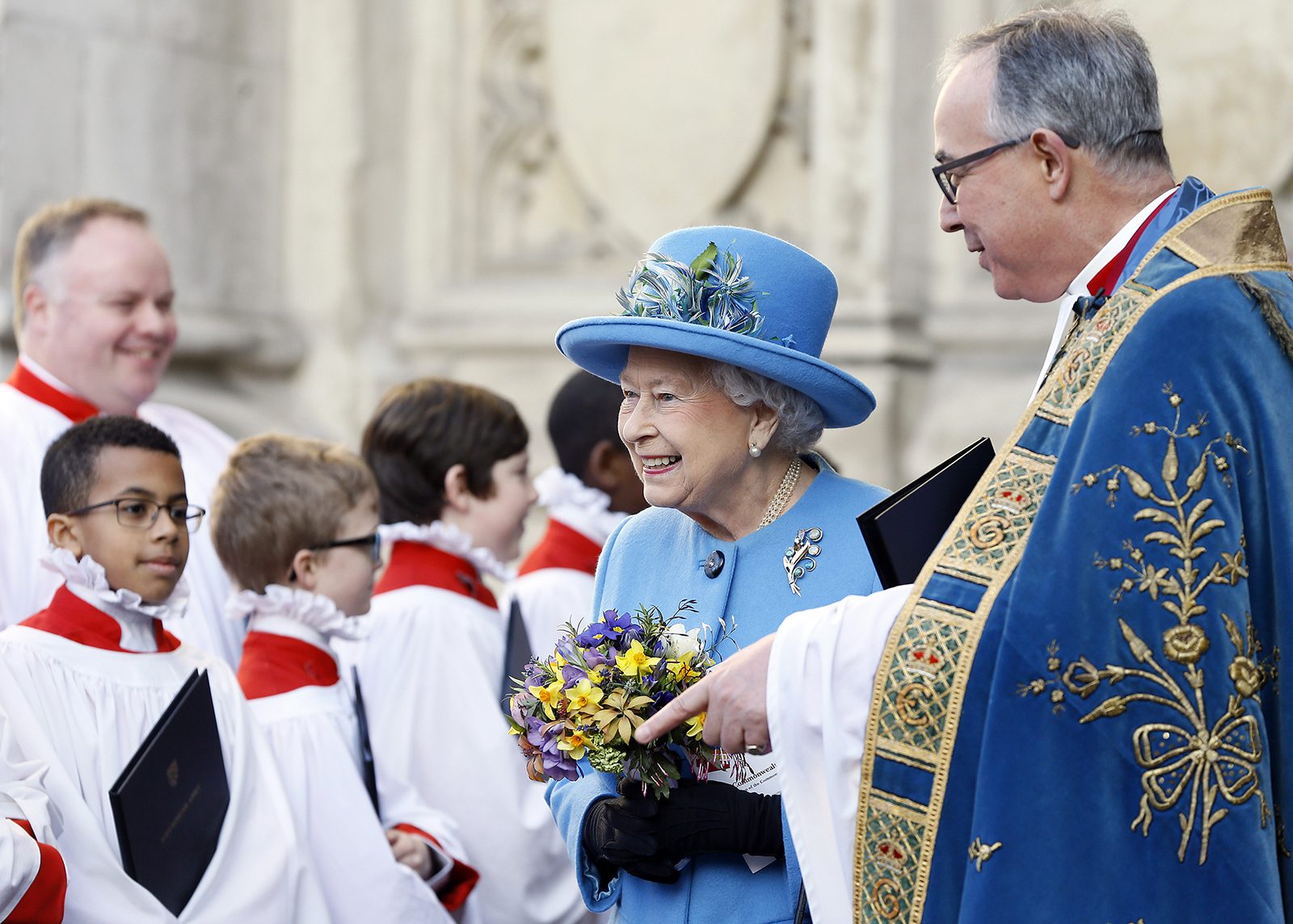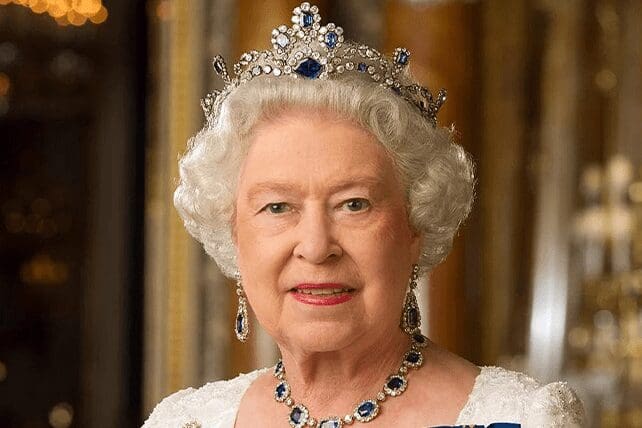LONDON (RNS) — Elizabeth II of England, Britain’s longest-serving monarch and official head of the Church of England, died Thursday (Sept. 8) at Balmoral Castle in Scotland at age 96. She came to the throne in 1952 but had dedicated her life to service of her nation six years earlier, as a 21-year-old princess, saying, “God help me to make good my vow.”
When Elizabeth was crowned, following her father, George VI, Britain was still recovering from World War II and its heavy bombing campaigns; Winston Churchill was prime minister and the country still had an empire. The young queen’s coronation suggested a new era — as the millions of television sets purchased to watch the live broadcast of the ceremony from London’s Westminster Abbey signaled.
But the coronation itself was steeped in tradition and confirmed the intertwining of the monarchy and religion. The more-than-1,000-year-old ceremony involves the anointing of the monarch, who commits himself or herself to the people through sacred promises.

This is a June 2, 1953, file photo of Britain’s Queen Elizabeth II and Prince Philip as they wave to supporters from the balcony at Buckingham Palace after her coronation at Westminster Abbey, London. (AP Photo/Leslie Priest, File)
One of those, to uphold the Protestant religion, is also a reminder of the religious divisions of the nearer past.
The queen’s two titles of Defender of the Faith and Supreme Governor of the Church of England, given to her at her accession, also owe their existence to Reformation history. The first was first bestowed on Henry VIII by a grateful pope for the king’s rebuttal of the teachings of Martin Luther. Henry defiantly held onto it even after breaking with Rome to declare himself head of the new Church of England.

Britain’s Queen Elizabeth II passes the choir as she leaves after attending the Commonwealth Day service at Westminster Abbey in London, March 14, 2016. Organized by the Royal Commonwealth Society, the service is the largest annual interfaith gathering in the United Kingdom. (AP Photo/Kirsty Wigglesworth)
His daughter, the first Elizabeth, dubbed herself Supreme Governor of the Church of England, saying Jesus Christ was its head. To this day, the British monarch retains constitutional authority in the established church but does not govern it. The modern Elizabeth left that to the bishops, although she addressed general synods and maintained a role as a listener and guide to her primate, the Archbishop of Canterbury.
On Thursday, Archbishop of Canterbury Justin Welby released a statement noting the “signs of a deeply rooted Christian faith” in the queen’s life: her courage even as she mourned her husband, Prince Philip, the Duke of Edinburgh, who died in April 2021; her reminders in the darkest days of the COVID-19 pandemic that darkness cannot overcome light; her service to “her people and her God.”
“As a faithful Christian disciple, and also Supreme Governor of the Church of England, she lived out her faith every day of her life. Her trust in God and profound love for God was foundational in how she led her life – hour by hour, day by day,” Welby wrote.
While Defender of the Faith has been an inherited title and little more, Elizabeth II embraced it and in recent years made it her own, speaking very openly about her faith and explaining how it provided the framework of her life.
She did this mostly through her annual Christmas message, a tradition begun by her grandfather, George V, in 1932, and continued by her father. Her early Christmas Day broadcasts were platitudinous — the holidays as an occasion for family was a frequent theme. In 2000, however, she spoke of the millennium as the 2,000-year anniversary of the birth of Jesus Christ, “who was destined to change the course of our history.”
She went on to speak very personally and frankly about her faith: “For me the teachings of Christ and my own personal accountability before God provide a framework in which I try to lead my life. I, like so many of you, have drawn great comfort in difficult times from Christ’s words and example.” Similar sentiments have been aired at Christmas ever since.

